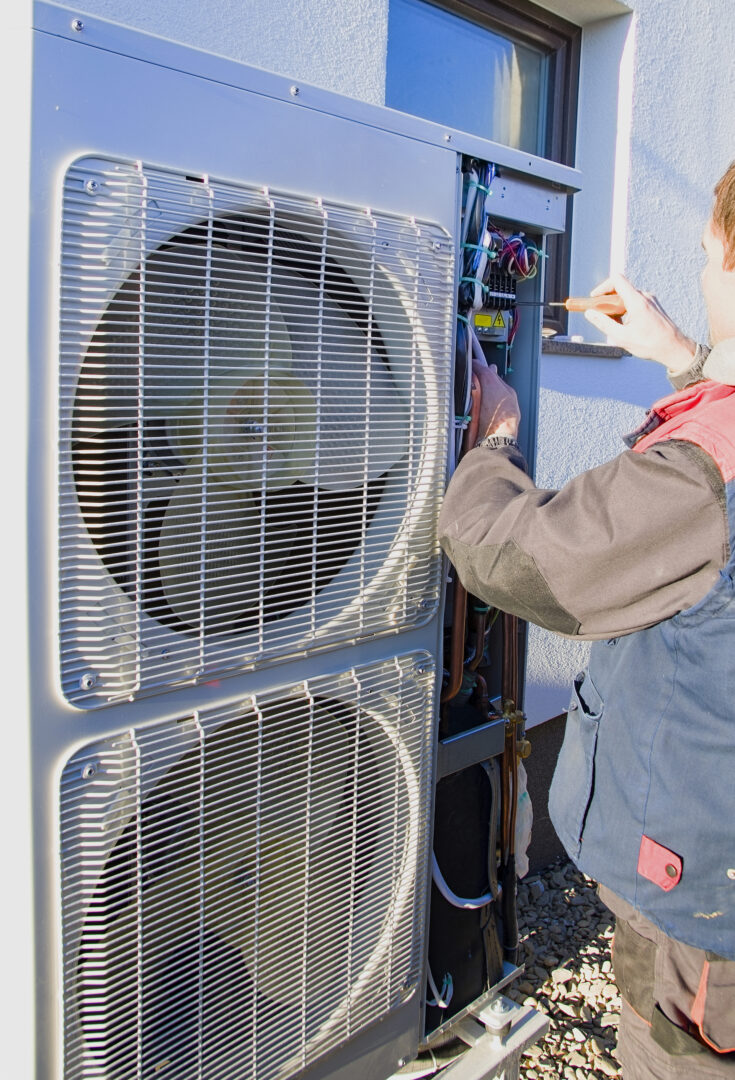Comfort. Energy Expenses. Safety. Value

How Energy Conservation Influences Indoor Air Quality
Posted by: jlbworks
Posted on: December 5, 2022
Heating, Ventilation, and Air Conditioning (or HVAC) systems are designed to maintain consistent temperatures and healthy indoor air quality. If you’re not using an energy-efficient HVAC system, though, you might have higher levels of pollutants in your home than you’d like. You might also be spending more on energy bills than you’d like.
Are you considering upgrading to a new HVAC unit that helps you conserve energy? Learn more about the benefits of these systems below.
Enhanced Ventilation Improves Air Quality
A well-ventilated space allows air to move easily into, out of, and within the room. Poor ventilation results in poor indoor air quality because it doesn’t allow airborne pollutants and particles to exit a space — nor does it allow fresh air to enter. On the flip side, excessive ventilation can lead to wasted energy. It also creates more opportunities for potentially harmful substances to get into your home.
Energy-efficient HVAC units take both of these factors into account and allow for smarter, more effective ventilation throughout your home. For example, these systems can measure indoor air pollutants and increase or decrease ventilation based on those measurements. They can also ensure the ventilation rate never drops below a specific value.
Reduced Moisture and Mold Growth
On a similar note, enhanced ventilation can also improve quality by preventing moisture buildup and mold growth.
In a poorly ventilated home, it’s easier for moisture to accumulate. Excessive humidity, in turn, creates more opportunities for mold to grow — and more potential for you and your loved ones to breathe in mold spores. Prolonged mold exposure can lead to various health issues, including respiratory difficulties, headaches, and fatigue.
Reduced Costs and Environmental Impact
When you prioritize energy efficiency in all areas of your life — including your HVAC system — you can save money. Upgrading to a more energy-efficient system can reduce energy bills and ensure you’re not overpaying to heat or cool your home.
Energy-efficient systems are also better for the environment. Investing in a more sophisticated, energy-efficient unit can reduce carbon dioxide emissions — or even eliminate them altogether. This update allows you to lessen your carbon footprint and minimize the total impact you have on the planet.
Improved Home Safety
Improving the control of indoor air quality with a new and improved HVAC system helps you breathe more easily by reducing your exposure to mold, pet dander, and dust. It also reduces your exposure to toxic substances like smoke, radon, and carbon monoxide.
By allowing for better ventilation — without over-ventilating your space — you can avoid breathing in all kinds of harmful substances and rest easy knowing you and your loved ones are protected.
Increased Comfort
In addition to helping you save money and making your home safer and healthier, you can also ensure you and your loved ones stay as comfortable as possible when you upgrade to an energy-efficient HVAC unit.
These units help your home stay cool during hot seasons and warm during cold seasons — without running up extreme energy bills. If you want to stay comfortable and avoid extra costs during the hottest and coldest months of the year, investing in a new HVAC system could make a big difference.
Upgrade to an Energy-Efficient HVAC System with C&M
Now that you understand the benefits of these systems, are you ready to switch to a more energy-efficient, eco-friendly HVAC model? If so, our team at C&M Heating and Cooling is here to help. We currently offer the greenest method for heating and cooling your home.
Our GeoThermal systems do not produce any carbon dioxide emissions or have other adverse effects on the environment. It uses the Earth’s temperature to heat or cool your home, too, resulting in 70 percent energy savings!
Contact us today to place an order or schedule an appointment.
